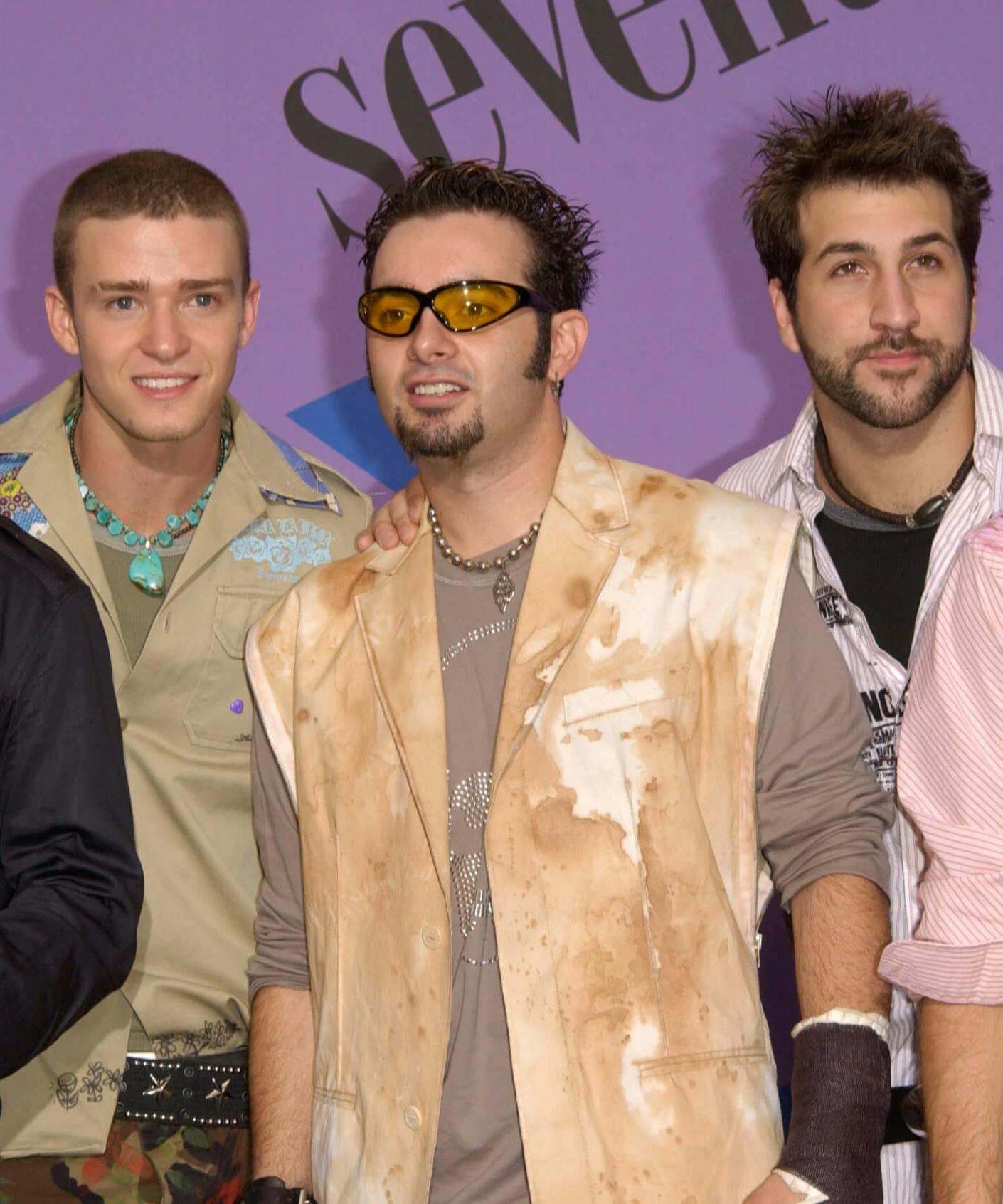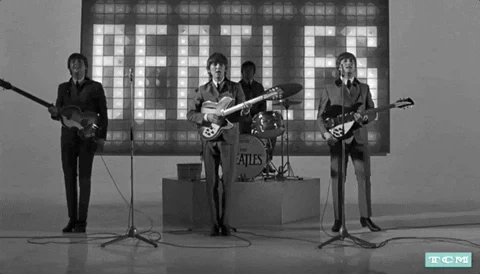Why Girls And Women Alike Love Boy Bands, According To Science
Love them or hate them, boy bands have been a staple in popular culture for decades and will be for decades to come.

From successful supergroups like Backstreet Boys and NSYNC to talented but smaller groups like 98 Degrees and Dream Street as a little girl, to the rise of the Jonas Brothers and One Direction in my teen years, you could say I know a thing or two about boy bands. I don’t remember a time when I didn’t love boy bands (shoutout to my older cousins who introduced me to them when I was in preschool), and I know I’m not alone.
But before we get into why we love them, it’s time to go over a quick history of the boy band.
A Brief History of Boy Bands
Though many of us think of the ‘80s and ‘90s as the start of boy band mania, the band that laid out the formula for the modern boy band was The Beatles in the ‘60s. Boy bands then evolved to consist of groups of teenage boys and young men who sang pop or R&B music, leading to popular groups like The Jackson 5 and The Osmonds in the ‘60s and ‘70s and New Edition, Menudo, and New Kids On The Block in the ‘80s.

The early ‘90s started with popular R&B groups like Boyz II Men, but the appeal of pop groups like New Kids On The Block led to the creation of some of the more popular boy bands like Backstreet Boys and NSYNC. These groups mastered the boy band formula with a group of talented (and handsome) young men singing and dancing, each having their own personality come out in their music. They also created some of the most iconic songs and music videos of our time, making them popular for years to come. While many more boy bands were popular in the late ‘90s and early 2000s, nobody comes close to the success and popularity reached by NSYNC and Backstreet Boys.
Boy bands had another surge in the late 2000s and early 2010s. The Jonas Brothers gained popularity on the Disney Channel in the mid-2000s with several hits (that are still amazing), making way for One Direction to enter the scene after they appeared on X Factor UK in 2010. One Direction gained global popularity in ways that previous generations couldn’t dream of with the rise of social media and influencer culture, making them one of the most successful boy bands of all time. The band went on hiatus in 2015, creating solo careers for all band members and leading to the immense popularity of Harry Styles.
The late 2010s and early 2020s have been all about Korean pop music, leading to the global popularity of South Korean groups like BTS. While only one member of the band is fluent in English and many of their songs are in Korean, the rise of social media has helped them reach out to fans who speak multiple languages. It also helps that their music is catchy, and all seven members are great singers and dancers; however, BTS recently announced they were taking a hiatus. Though many fans hope they’ll come back together, their departure leaves room for more boy bands to thrive.

Now that we know the history of boy bands, what is it about them that makes us all so obsessed?
Girls Like Boys (and Boy Bands)
The simplest reason why we love boy bands is that music is good for your mental health. Boy bands are famous for catchy (and borderline cheesy) songs that make you feel good. According to Melissa Malski of Mic, “Music affects us deeply, emotionally, and at a primal level. When you get chills from a song, that's dopamine flooding your brain's pleasure system. This same system is activated when you eat, have sex, or make friends. Your brain responds to music in the same way it does to things required for survival. This is why a song can make you laugh, cry, or transcend the world around you.”
Think about it, how do you feel when you hear a Backstreet Boys or NSYNC song? It makes you want to smile and possibly dance around (I may or may not have paused writing this to dance to a song or two). It doesn’t matter if the song is over 20 years old, it feels good to listen to, and it’s so catchy.
Another reason why we love boy bands is that they have something for all types of girls and women to enjoy. Boy bands are designed to appeal to the masses, as music producer Brad Taylor says, “Boy bands are the dream package. They’re put together so that every woman, no matter her age, is attracted to something in the group.” Curated with every classic archetype from the funny guy to the bad boy, boy bands attract everyone from the girl who loves to wear pink to the tomboy who likes to borrow her brother’s clothes. This marketing technique is likely the main reason why boy bands are so popular, but the sense of community they create keeps the fans engaged.
Even before One Direction blew up on social media at the height of their popularity, there has always been a sense of community surrounding boy bands. Though many scoff at the idea of a sense of community surrounding a boy band, it’s no different than a sense of community surrounding a sports team (I should know, I’m obsessed with both).
Similar to sporting events, there’s a lot of screaming and cheering at boy band concerts, and some sociologists believe that this brings people together. Sociology professor Michelle Jennings says that fan screams are "the embodiment simultaneously of collective identity and individuality. So if you're chanting with fellow fans at a soccer game or booing a politician or yelling amen at a church service, you're using your body and your voice to show that you're part of a larger group with a common identity."
These fandom communities bring a sense of belonging to something, which is important to our mental health because humans are social creatures. Research shows that those who feel a sense of belonging have an easier time dealing with stress and are less likely to suffer from depression and anxiety. Combine a sense of community with singing, dancing, and cute boys, and it’s no wonder why we love boy bands so much.
Boy Bands and Nostalgia
In mid-January, I was scrolling through my Instagram feed to find something I’d been waiting for since 2002 – a Dream Street reunion. The four living members reunited on a ski trip to Montana with their wives, and posted about the trip on Instagram. Though the band had a Zoom reunion in honor of bandmate Chris Trousdale’s untimely death in June 2020, watching them do a Q&A on Instagram Live made me feel nostalgic. I went down a rabbit hole of watching old performances and listening to their music. The music not only made me happy but made me long for a time when the biggest stress in my life was whether I’d be home on time from dance class to catch the latest episode of Lizzie McGuire. Boy bands and nostalgia go together like peanut butter and jelly.
Since some of the most iconic boy bands reached the height of their popularity in the late ‘90s and early 2000s, Millennial women associate boy bands with childhood nostalgia. It’s no secret that Millennials love nostalgia because it’s fun and comfortable. This was shown in the success the Jonas Brothers experienced when they reunited in 2019 and why the Backstreet Boys are still headlining world tours. Boy bands make us happy, and it’s why they’ll remain popular for decades to come.
Closing Thoughts
Music is great for our mental health, and it helps when the songs are catchy and sung by cute guys. Boy bands have remained a staple in pop-culture for a reason; they make us happy and bring us a sense of community. They allow us to let loose at concerts or jam out in our car after a long day at work, making the boy band the feel-good genre that will always stand the test of time.
Love Evie? Sign up for our newsletter and get curated content weekly!